FS Charles de Gaulle Supports Counter-Terror Mission
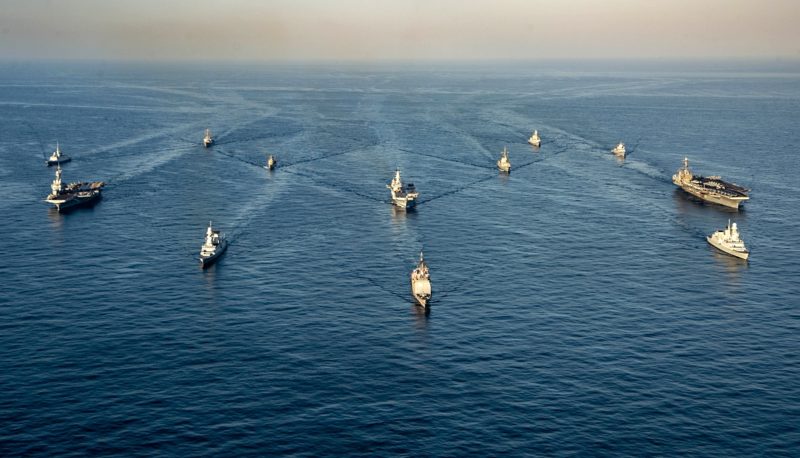
The USS Harry S. Truman Carrier Strike Group (CSG) remains in the Mediterranean while the Ukraine Crisis continues and has worked closely with the navies of France and Italy.
The Truman met up with the Italian Navy’s ITS Cavour and France’s FS Charles de Gaulle for a photo opportunity several days ago, as the large NATO-led Neptune Strike 22 concluded in the central Mediterranean. Thereafter, the US Navy and Marine Nationale flagships continued close co-operation, including Rafale M strike jets cross-decking to the American carrier.
During Neptune Strike 22, the tight working partnership of the Italian and American carriers was overseen by the Strike Force NATO (STRIKFORNATO) joint battle staff, under the direction of Supreme Allied Commander Europe (SACEUR). Vice Admiral Gene Black, US Navy – commander, US Sixth Fleet (SIXTHFLT) and also STRIKFORNATO boss – said that it had been “proved NATO is prepared to command allied carrier strike groups, and [we] look forward to the next opportunity to test and advance our command and control structure.”
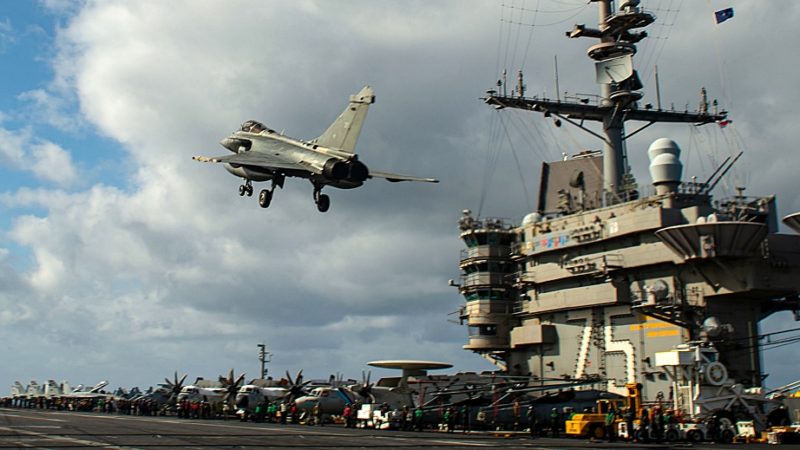

The units committed to what was also dubbed ‘Vigilance Activity Neptune Strike’ were not only the two carriers but also 15 other naval vessels, along with around 90 aircraft. In addition to the two carrier strike groups, taking part were Standing NATO Maritime Group 2 (SNMG2) and Standing NATO Mine Counter-measures Group 2 (SNMCMG2), with forces and personnel from 28 NATO countries involved overall.
According to Rear Admiral James Morley, of the Royal Navy, who is STRIKFORNATO’s Deputy Commander, the Neptune Strike 22 exercise “levered the combat power of a US carrier strike group, promoted interoperability with Allies and allowed operators to train on NATO networks, train to NATO procedures and become familiar with operating in the European Theatre.” He added: “These maritime Allied interoperability activities are the cornerstone of STRIKFORNATO.”
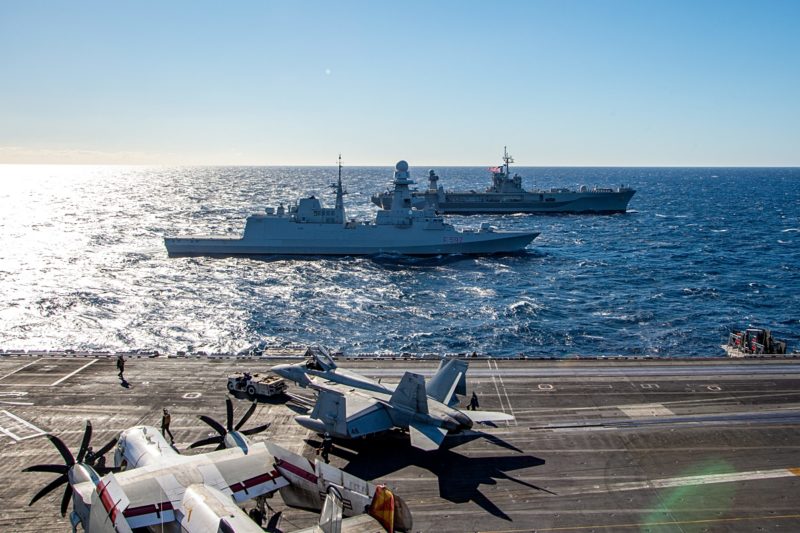
At a time of high tension between NATO and Russia, with major units of Moscow’s navy also deployed into the Mediterranean, Neptune Strike 22 was a timely reminder of how the Alliance nations can bring together, and tightly integrate, formidable conventional deterrent power. That resides not just in the strike jets of the carriers but also in the major surface and submarine escorts accompanying them, with quite a number armed with long-range Land-attack Cruise Missiles (LACM).
Within days of working with USS Harry S. Truman, the Charles de Gaulle was launching sorties in support of counter-terrorism missions. The French carrier’s air group aircraft flew reconnaissance missions over Syria and Iraq in support of ground troops fighting the remnants of the ISIL terror group.

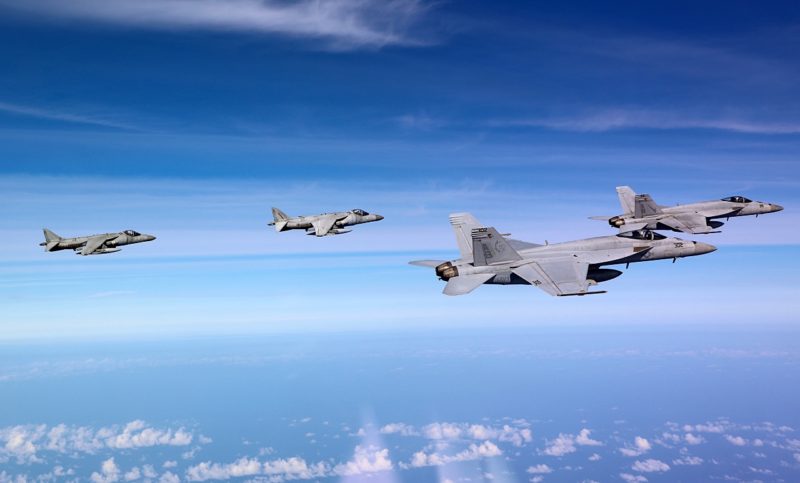
-
For more on the Ukraine Crisis, including Russian Navy activities, see the March edition of WARSHIPS IFR (published 18.2.22) and watch out for further posts on this web site. There is also a report on the French carrier strike group’s Mission Clemenceau 2022 deployment in the March edition. The magazine will be available in both hard copy and digital versions.

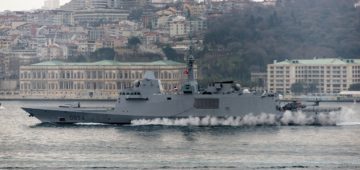



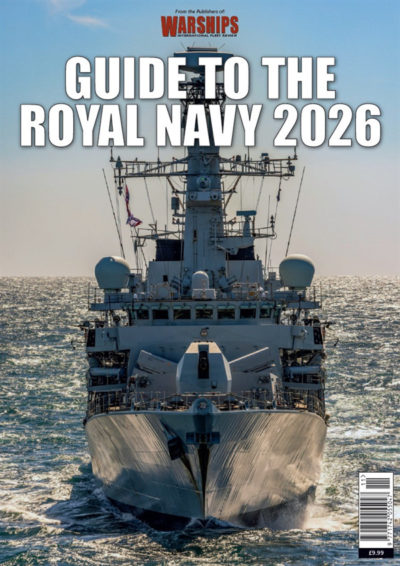
Comments
Sorry, comments are closed for this item